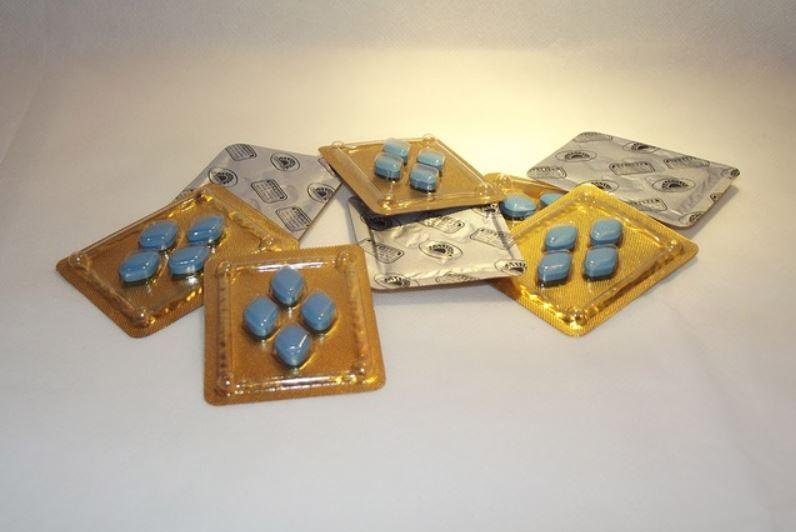A small, daily dose of Viagra, which is usually treated for erectile disfunction, greatly removes colorectal cancer risk in a test of mice, according to research. Photo by PublicDomainPictures/
Pixabay
March 19 (UPI) -- Scientists have found that a small, daily dose of Viagra greatly lowered colorectal cancer risk in a test with mice.
Researchers at the Medical College of Georgia at Augusta University found that placing Viagra in water reduced polyps by half in mice with a genetic mutation that occurs in humans, according to a study published in the journal Cancer Prevention Research. Polyps are abnormal tissue growths produced on the lining of the intestines, typically starting as during the teen years, that can become colorectal cancer.
Less than 10 percent of diagnoses occur in people younger than 50 years of age, according to the National Institutes of Health, and approximately 4.3 percent of men and women will be diagnosed with colorectal cancer, according to the National Cancer Institute. It's the second-leading cause of death in men and woman, according to the Centers for Disease Control and Prevention.
"Giving a baby dose of Viagra can reduce the amount of tumors in these animals by half," Darren D. Browning, cancer researcher at the Georgia Cancer Center and Department of Biochemistry and Molecular Biology at the Medical College of Georgia at Augusta University said in a press release.
The scientists next want to conduct a clinical trial for the drug in patients considered at high risk of colorectal cancer. They include a strong family history of the disease, multiple previous polyps and chronic intestinal inflammation like colitis.
In the past, Viagra has been used safely for uses other erectile dysfunction, it's primary use, including in premature infants with pulmonary hypertension.
Viagra relaxes the smooth muscle cells around blood vessels, allowing vessels to more easily fill with blood -- which is how it helps men with erectile dysfunction -- but Browning found it also increases levels of the chemical cyclic GMP, which affects the intestinal lining, or epithelium.
The researchers found the increased cyclic GMP suppresses some excessive cell proliferation in the gut, increases normal cell differentiation and boosts the natural elimination of abnormal cells. This process is called apoptosis.
"When we give Viagra, we shrink the whole proliferating compartment," Browning said. "Proliferating cells are more subject to mutations that cause cancer."
Because existing polyps were not affected, targeting cyclic GMP appears to be a good prevention strategy in high-risk patients, he says.
Last July, Browning's lab published a paper in Cancer Prevention Research that showed Viagra cut polyp formation in half in a mouse model of colitis, or inflammation of the colon, which is a risk factor for colorectal cancer. Like the new research, they found Viagra targeted problems from the genetic mutations, although inflammation also dropped.
Inflammation drives less than 5 percent of colorectal cancers, as about 80 percent form spontaneously when cells divide and mutate uncontrollably.
When people consume carcinogens, including those found in processed or over-cooked meats, mutations occur most often.















